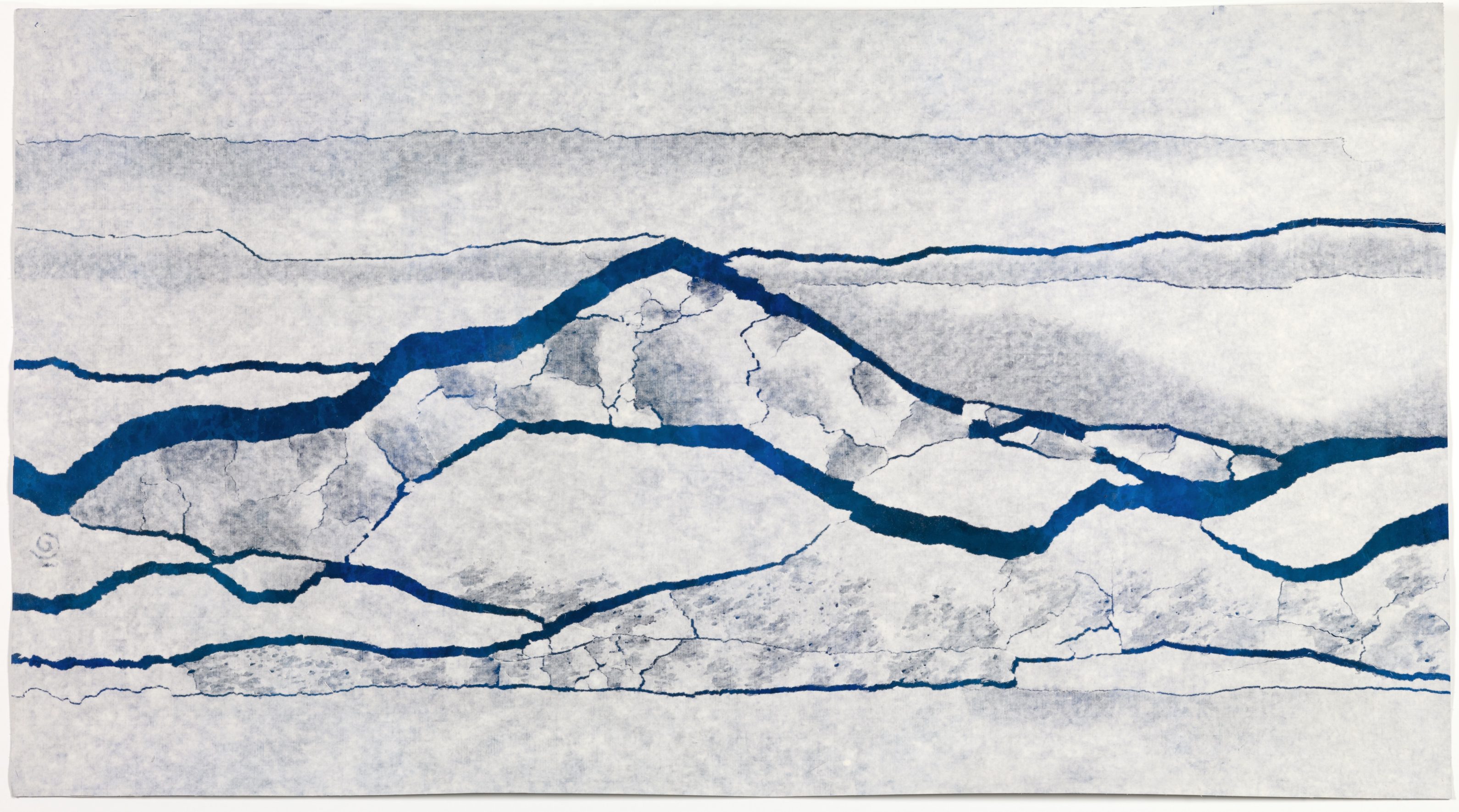Growing up in Communist China, Qiu Deshu studied ink painting and Buddhism. Contrary to the era’s politicized atmosphere, he specialized in abstract, apolitical art. His art follows historical tradition without hesitating to deconstruct it. His Blue Mountain lends modern expression to classical Chinese landscape. Using Western acrylic paint, Qiu defines rugged peaks with vibrant blues reminiscent of rivers. Mountains and rivers, both traditional landscape elements, collide and mesh, subverting aesthetic convention. With a few strokes, Qiu reveals sensuality in steadfastness, and softness in severity.
Hanshan conveys a similar paradox with his poem. A scribe forced into seclusion by political upheaval, he soon warmed to hermetic life. Adopting the name he styled for his mountain abode, he wrote Buddhist poems meditating on his connection with the strange yet beautiful Cold Mountain. Untitled opens with two concrete images: spring water and the moonlit mountain. Yet in them, Hanshan sees emptiness. Through the stream’s constant flow, he feels how “the world grows still;” in the unyielding mountain, his “spirit becomes clear.” His epiphany counters and deconstructs conventional symbolism. In symbols of constancy, he sees cosmic volatility—a crucial Buddhist concept. Both works deconstruct artistic convention and challenge traditional symbolism. At the same time, they affirm the landscape’s role as an endlessly volatile source of inspiration.
Poem selection and label by Yuxiao Meng ’19
